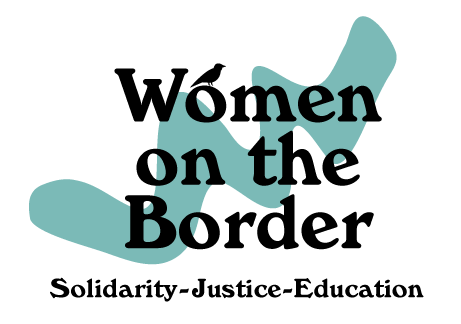Austin Tan Cerca de la Frontera
Welcome to the new and brighter world of solidarity
Over the long-term, ATCF creates and nurtures spaces in which people cross boundaries of language, nationality, history, class and culture to meet each other. People who have not had the actual experience of traveling with us or other solidarity organizations, rarely understand the nature of the encounters we have. If you haven’t been there it’s hard to understand and easy to suppose that we go to help, fix or advise. We do none of this. We go to learn as one does in any respectful and challenging human relationship. We struggle to be present with open minds and hearts. Sometimes it takes courage. One delegate put it, “We go with all the answers and come back with only questions.”
Often the spaces we enter feel like a different world or a new reality. In them we challenge and change old power relations; these new places operate through solidarity which is “horizontal and exercised from equal to equal,” as Latin American political philosopher and poet Eduardo Galeano says. He continues: “In contrast, charity is a humiliating above-below practice that never alters power relations the slightest bit.”
Solidarity, not charity, is at the core of Austin Tan Cerca’s programs: for us it means an orientation that breaks through the usual hierarchies; because it breaks down old power relations, it’s optimistic, humane and a key to social change. A more just and egalitarian way of working, thinking and feeling together spreads from the small scale of our programs to the global world in general.
Our experience shows that spaces of solidarity are under attack. Old power structures resist and hate them. When we refer to solidarity, outsiders understand us cynically as hiding ulterior motives behind a cloak of charity. We have to shout to be heard when we say, for example, that we visit maquiladoras workers not as union organizers, nor to stir up protest among Mexican workers employed by US companies, nor to advise them on how they can organize or advocate for themselves. Power structures dismiss our reference to solidarity. They are looking for a deal that will give an advantage and assume we are too.
Spaces of solidarity are precious; they are a starting point for significant social change. They are also vulnerable. How can they stay alive and grow? Help us protect and continue the solidarity work we started in 1999. While you are traveling with us, look for those solidarity spaces. We feel there is something new and bright about them. What can you learn from them? Make a commitment to us and to them. Enter freely to the extent that you wish. You may benefit in unexpected ways from the solidarity we’ve built over the years. We trust and welcome you. Let’s talk about what that might mean for you.
Judith Rosenberg 4/2014
